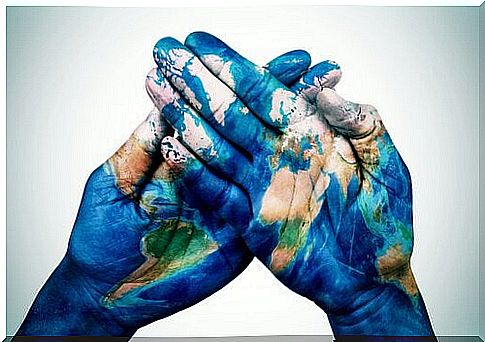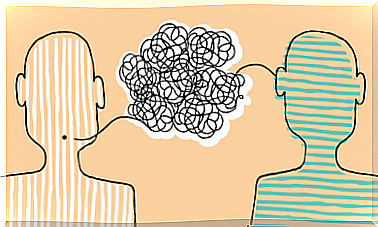Do You Know What Cultural Psychology Is?

Have you ever heard of cultural psychology? André Malraux once said that “culture is the sum of all forms of art, love and thought, which over the centuries have enabled man to be less enslaved.” Taking this definition as a stepping stone, perhaps we can see that cultural psychology gives us a broad view of the past. But also of the present and the future of a society.
Often our behavior is deeply intertwined with the culture in which we grew up. Sometimes even as intertwined as with our own experiences. This doesn’t mean that experiences and genetics don’t influence, but they aren’t the only things that shape and influence the way we act.
What is Cultural Psychology?
Let’s give you a brief overview. Most experts call it a learning stream that emerged as an alternative to the theories and methods of more speculative forms of psychology. Wilhelm Wundt is considered the founder.

Cultural psychology focuses on the influence a culture has on the people who grow up in it. It, along with behavior, also influences thoughts and feelings. The main means of influencing behavior are the habits and customs of the culture.
It tries to explain why a group of people immersed in a certain context acts in a certain way. With this perspective, we look at details and explain what we observe.
Why, for example, do western societies, which are very globalized today, look horrified at certain past events and diametrically opposed societies? How come generations were not shocked when those events took place in their time? Why don’t people who are immersed in those opposing cultures see these things as terrible?
It raises another question. What things will future generations view with horror as they learn about things happening now? Things that are completely normal in our eyes?
Cultural barriers
When you look at the state of the world today, it’s easy to see all the cultural barriers. Languages, customs, mentalities and ways of thinking are all forms of cultural barriers.
Every country has certain customs that are normal for the entire population. But also customs that are more localized to specific cities or regions. When combined with each other, all these cultural influences lead to variations in the human mind. Each individual receives a unique cultural heritage that depends on many different factors.
We can cite a few simple examples. For example, Muslims do not eat pork, Indian people see cows as sacred animals, the Basque Country of Spain has its own language. All these factors create a unique cultural heritage that is unlike any other population.
Why should you study cultural psychology?
Cultures differ from each other depending on their location or history. It also influences the behavior and thoughts of people who come into contact with it. What is the purpose of cultural psychology? It goes beyond just describing facts. Instead, it examines both the origins and consequences produced, defined and maintained by tradition in that particular context.
As we said before, in India cows are sacred. But how did they arrive at that position? The purpose of cultural psychology is to answer these kinds of questions.
It doesn’t just explore the core of the story. Through which we can understand why a population has a particular culture. It also examines how culture influences the people in it. Why do some habits last and others don’t? How do these customs influence patterns of behavior? What implications do these traditions have for the future?

References to sociology and anthropology
Cultural psychology is closely related to the social sciences, especially sociology and anthropology. While sociology studies societies in a broad sense, it also focuses on quantitative data to examine dynamic histories. The idea is to understand how a specific culture originated and how it affects people.
Meanwhile, anthropology studies the cultural content of a society and the collective changes that take place. The goal is to understand symbols, concepts and settings.
So, if you were to ask yourself what cultural psychology is, now you have a little sketch. It can help you understand ethnic behavior and study intercultural conflict. But these are just some interesting examples.









